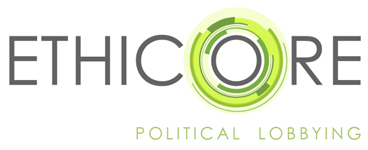 Following this past week’s screening of the one-on-one interview which eventually transpired between the Muslim Judicial Council (MJC) and ETV 3rd Degree present Deborah Patta, here is further set of thoughts and observations and analysis of the PR (public relations) and strategic communications lessons by ETHICORE’s Abdul Waheed Patel. Its content has been already been shared with the leadership of the MJC, subsequent to a briefing to the MJC’s leadership a mere 12 hours earlier on possible approaches to its public affairs and strategic communications dilemmas.
Following this past week’s screening of the one-on-one interview which eventually transpired between the Muslim Judicial Council (MJC) and ETV 3rd Degree present Deborah Patta, here is further set of thoughts and observations and analysis of the PR (public relations) and strategic communications lessons by ETHICORE’s Abdul Waheed Patel. Its content has been already been shared with the leadership of the MJC, subsequent to a briefing to the MJC’s leadership a mere 12 hours earlier on possible approaches to its public affairs and strategic communications dilemmas.
Some thoughts and observations of the public relations implications of the Muslim Judicial Council’s interview with ETV 3rd Degree, 31 January 2011
By Abdul Waheed Patel – Managing Director, ETHICORE Consulting and Advisory Solutions
31 January 2012
General comments
- Whereas the initial enquiry into the Orion debacle broadcast by ETV 3rd Degree raised emotions and concerns, the one on one interview with the ETV 3rd Degree will in contrast raised more speculation and unanswered questions.
- Despite valiant efforts and attempts to provide clarification and answers, the MJC was totally unprepared for the interview and underestimated the interviewers preparedness and directness.
- This once again points to the dire need for the MJC to have its disposal competent, capable, proficient and experience public affairs and strategic communication practitioners and advisors across the communications mix to provide it with strategic counsel, guidance and services, and who are religiously, political and emotionally mature, sophisticate and intuitive.
Leadership and organisation
- Someone at the pinnacle of the leadership in the MJC should have conducted the one-on-one interview. Whilst the Deputy-President (who does serve as a trustee of the MJC Halaal Trust) was interviewed on the issue of the MJC’s audited financial statements, this was a secondary aspect of the interview. The primary interview with Moulana Abdul Fataagh Carr of the MJC Executive Committee was not convincing despite his best and most sincere attempts. The inability to have the interview conducted with someone at the pinnacle of the leadership in the MJC or the MJC Halaal Trust will raise questions about the level of leadership in the MJC itself; the confidence in the leadership and the confidence of the leadership, not to mention how seriously the leadership is taking the enquiry into the Orion issue in the first (despite public pronouncements confirming the severity with which the MJC takes the allegations), or simply trying to wish it away.
- It is public knowledge that much as Moulana Abdul Fataagh Carr is a member of the MJC Executive Committee and a respected and learned Islamic scholar, he is not an official spokesperson for the MJC on halaal issues. This raises further questions about the level of organisation, structure and administration in the MJC (which is already in doubt in the public mind), as well as the ability of the MJC Halaal Trust current trustees to serve as its official spokesperson.
- There is a need to better explanation the separation in the operations and legal form of the MJC and the Halaal Trust and the relationship between the two.
The Halaal certification and inspection process
- There is a desperate need to better explain the thoroughness of the halaal certification and inspection process, end-to-end at every step and stage in the process (an info-graphic and video) may be useful? Broad, reactive and unsystematic responses do not help, as was the case in the interview and in previous clarification and explanations. These clarifications and explanations have up to now always been provided in response to media enquiries and the pressure under which these situations take place. The result is that the MJC always comes across as defensive, unsure and apologetic.
- There is also a need for better clarity on the types of halaal certificates issued by the MJC e.g. manufacturing and production; storage and transportation; ingredients etc (perhaps info-graphics and videos need to be customised for each of these certification types).
- The levels and processes in the halaal inspection procedure need to be better explained and clarified. There is now a clear impression that:
1) The MJC does not have sufficient inspectors;
2) The inspection process is not thorough;
3) That there exists a conflict of interest between inspectors employed by the MJC but possibly paid by the company that has been certified halaal; and
4) There is confusion between the roles of inspectors employed by the MJC and those employed by the halaal certified company.
Messaging and communication
- Then MJC does not come across as confident, convincing, compelling and articulate in their messaging, communication and responses to media enquiries. This is creating doubt about the MJC and its ability to defend itself and its positions credibly with finesse and without being defensive. This is a function of:
1) A lack of preparedness, research and possibly even simulating the interview conditions and environment;
2) Absence of key messages and themes prepared in advance;
3) An inability to anticipate complex, difficult, challenging and confrontational questions; and
4) Lack of effective spokesperson, media and public relations know-how.
- The MJC took the bold step of making its audited financial statements and those of the MJC Halaal Trust publically available in the wake of the first broadcast of the Orion debacle. However, in the follow-up 3rd Degree interview the MJC was unable to convincingly answers detailed questions about the financial statements, illustrating and creating a public perception of:
1) A lack of understanding of the financial accounts; and
2) The in appropriate selection of the people to comment on the audited financial statements;
3) Doubts about the accuracy of the financial statements itself, despite them being independently audited and as a result bringing into question the integrity and thoroughness of the auditors.
- In all communication and the various forms of communication, unless it is absolutely so required and necessitated, the MJC should refrain from focusing on Deborah Patta as a ‘target’ and instead focus on responding to accusations, allegations, enquiries and questions on a factual and informed basis. The adage of “play the ball, not the man” holds true. Patta is an investigative journalist. Had it been another investigative journalist, there is no guarantee that their conduct would have been much different. Personalizing an attack on her will only worsen matters for the MJC and further empower Patta and others not sympathetic to the MJC with a reason to believe that the MJC is deflecting attention from it by attacking her character. This will only create a negative and downward spiral effect with MJC sympathizers following suite and Patta sympathizers and MJC opponents responding in return.
Abdul Waheed Patel is Managing Director at ETHICORE Consulting and Advisory Solutions – a niche, ethically focused public affairs and strategic communications agency. He has more than 12 years of international market experience and expertise in governmental, legislative, public policy, regulatory, strategic communications, public and stakeholder affairs. He has held various analyst and senior positions as a strategic communicator, policy maker, political strategist and advisor, campaign strategist and lobbyist in both the public and private sector. He holds qualification in governance and political science, public management and public policy from the University of Cape Town, the Commonwealth Enterprise Competitiveness Program and as a Fellow of the Public Policy Partnership of South Africa (administered by the Woodrow Wilson and Andrew W. Mellon Foundation, USA). He resides in Cape Town and works extensively in South Africa and internationally.
Email: [email protected]
Facebook: abdulwaheedpatel
Twitter: @AWPatel
Download the full PDF here: Thoughts & observations MJC 3rd Degree interview_31Jan2011(2)
